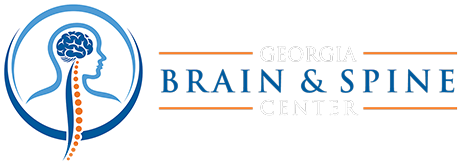Back pain is one of the most common types of pain there is. Back pain can result from injury, age, genetics, overuse, poor posture, or some combination of those variables, and choosing the appropriate treatment depends on a number of factors. Advanced cases may require intensive interventions, while most can be handled through nonsurgical means. Fortunately, there are some habits and behaviors you can adopt to lessen your chances of developing issues with back pain.
 Not all degenerative spinal conditions, such as spinal stenosis, can be avoided. Their effects, however, can be alleviated and managed. If you maintain a healthy back, the condition may be less severe and more manageable than it otherwise might be. This means doing exercises aimed at developing good balance, strong back muscles, a strong core, and straight posture. All of these elements are connected and, when in good condition, can work together to help reduce back pain from certain unavoidable conditions of the spine.
Not all degenerative spinal conditions, such as spinal stenosis, can be avoided. Their effects, however, can be alleviated and managed. If you maintain a healthy back, the condition may be less severe and more manageable than it otherwise might be. This means doing exercises aimed at developing good balance, strong back muscles, a strong core, and straight posture. All of these elements are connected and, when in good condition, can work together to help reduce back pain from certain unavoidable conditions of the spine.
Other conditions that cause back pain can be avoided, or at least postponed, through behavioral choices. One of the most common causes of back problems is a type of spinal “wear and tear” called degenerative disc disease (DDD). Between all of your spinal vertebrae are spinal discs that serve to cushion the vertebrae and provide shock absorption for the back as a whole. DDD occurs when these discs wear out over time.
DDD is mainly caused by normal use of the spine. However, there are certain activities that increase the chance of DDD and cause symptoms. Truck drivers, certain athletes, and chronically overweight people comprise just a few categories of people who are more prone to developing DDD than others. There are several other back-pain-causing conditions that can be, at least partially, blamed on behavior. That means there are habits you can adopt and changes you can make to help keep your back strong and healthy:
- Be active. If you have a job or hobby that requires you to sit in the same position for long periods, make an effort to change up your position and get up to walk around every one to two hours. Sitting puts more pressure on your spine than walking does, so you might even consider investing in a standing desk.
- Manage your weight. The heavier you are, the more stress is put on your spine. Over time, this can wear down your spinal discs and joints and cause other problems.
- Don’t smoke. Smoking has been linked to chronic back pain.
- Practice good posture. This keeps your spine properly aligned and helps develop core and upper-back strength.
- Strengthen your core. It’s difficult to overstate the importance of core strength in the prevention and management of back pain. Your core includes your abs, obliques, lower lats, and other muscles primarily in your body’s midsection. A strong core can help with balance and injury prevention and even slow down degenerative conditions.
- Be responsible with high-impact activity. It’s best to avoid potentially injurious activities, but if you do engage in high-impact pursuits, make sure you’re using proper form, wearing any recommended safety gear, and keeping your intensity at a safe and appropriate level.
These are just some of the main ways to make your back stronger and healthier. Your choice of mattress, shoes, diet, and more can also make a big difference. In general, it’s always good to make healthy lifestyle choices, eat right, exercise regularly, and develop strength that’s balanced among all your muscle groups.
If you want more specific health advice on maintaining a healthy spine, brain, or nervous system, think you may have a health issue we can help with, or would like a second opinion on an initial diagnosis, please contact Georgia Brain & Spine at 1 (800) GO-SPINE to schedule a consultation today. Be sure to follow us on Facebook and Twitter for the latest updates, and come back to the website soon for a new blog.
